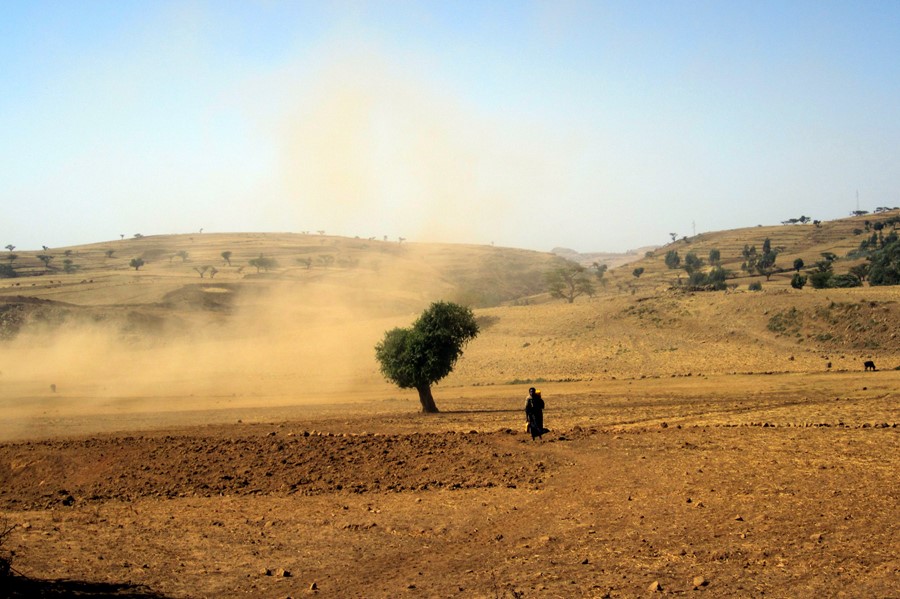
Martin Maier reflects on Pope Francis’ new Encyclical letter Laudato Si’
Awaited for many months and the object of a great deal of commentary and criticism in advance of publication, Pope Francis’ environmental Encyclical came out on 18 June. Its central message is that dangerous climate change and the unscrupulous exploitation of natural resources continue to threaten the future of our planet. The issue of ecology is an issue of justice. The community of Mankind has the power to change course and halt the fatal dynamic, and to this end particular potential lies in the Judeo-Christian tradition and in religions. After all, preservation of the Creation is a central ecumenical and inter-religious theme.
As his choice of name suggests, Pope Francis has made the preservation of Creation a central concern of his pontificate. In keeping with his choice of papal name, for the title of his Encyclical he has chosen the opening words of the Canticle of St. Francis: “Praise be”. In this poem the Poverello praises and thanks God for the beauty of Creation. The sub-title: “On the care of our common home” adds to the major tune of the Song of Creation a tune in a minor key. The first chapter of the letter, in which the Pope addresses not only Catholics but all those who dwell on earth, summarises the consensus among scientists: that the dangerous climate change is largely caused by man and is mankind’s responsibility. In addition to global warming, the questions of clean water supply and the loss of biodiversity are also addressed. The diagnosis leaves no doubt: “Never before have we mistreated and damaged our common home so much as in the last two centuries.”
In the Encyclical’s second chapter the Pope sketches out a theology and spirituality of Creation. A basic premise is that the Creation has been entrusted to human beings as a gift from God, and that it must be protected and preserved. We are the stewards of our common world. Theologically speaking, the disturbed relationship between human beings and God’s Creation is an expression of sin. And thus the imperative is born of an “ecological conversion”, which Pope John Paul II has already formulated.
Throughout the document the issue of ecology is considered to be a question of justice. This can be seen in a parallel treatment of the cries of the poor and the cries of Nature. Here also the Pope harks back to Francis of Assisi, for whom “care for Creation and care of the poor and neglected were closely linked.” Those responsible for the dangerous warming and environmental degradation are mostly located in the industrialised countries of the North, while those suffering the consequences live mainly in the impoverished lands of the South. Hence the Pope derives the intrinsic principle of “different but common responsibility” on which the UN countries at their Rio Summit of 1992 agreed. The industrialised countries are the main cause of the global environmental crisis and thus bear a greater responsibility for the transition to sustainable development.
Additional topics which run through the entire Encyclical are: inter-generational justice; criticism of the prevailing paradigms of technology, economy and progress; the firm belief that ecological, economic and social issues are internally interlinked; the concept of the global commons such as clean water, the oceans, forests and the atmosphere; the intrinsic value of all creatures, and the need for new models for production and consumption.
In his critique of modernity, the Pope is clearly influenced by Romano Guardini’s book The End of Modernity. The ecological crisis is the external manifestation of the ethical, cultural and spiritual crisis of modern humanity. He does not, however, fall into cultural pessimism; instead he recognises the many different facets of modernity and technological progress which he sees in a very positive light.
With this Encyclical Pope Francis lays out his ecological Magna Carta, to which he will certainly refer in his speeches before the US Congress and at the United Nations in September of this year. Perhaps people might have expected some rather more concrete proposals for action. But the Pope explicitly states that he does not wish to make decisions on scientific issues, nor replace the work of politicians, but prefers to issue an invitation to open and transparent debate. “Laudato Si” contains a wealth of material to inspire and enrich not only international policy but also ecumenical and inter-religious dialogue and concrete community projects. One guiding principle for its implementation could well be: “Think globally – act locally.”.
Martin Maier SJ
JESC
www.jesc.eu
